Grantee Perception Report 2013
- The Leichtag Foundation rated higher than typical on many measures throughout the Grantee Perception Report, including helpfulness of the selection, reporting, and evaluation processes in strengthening grantees’ organizations.
- The Leichtag Foundation was rated higher than three-quarters of funders in CEP’s comparative dataset for its quality of relationships. Grantees reported feeling very comfortable approaching the Foundation if a problem arises and credited the Foundation for its fairness and responsiveness.
- Though the Leichtag Foundation was noted for its impact on local communities, grantees asked the Foundation to do more to deepen its impact in the field by more proactively sharing what the Foundation is learning from its grantmaking and research, and by connecting grantees to field experts to foster knowledge.
- Overall, the Foundation received average marks for clarity and consistency of communication related to goals and strategies.
- Grantees rated the Foundation positively in its impact on and understanding of the North County San Diego and Jerusalem communities.
- The majority of Leichtag grantees report receiving some form of non-monetary assistance such as facilitating local collaboration, introductions to other leaders in the field, and technical assistance. These grantees find this assistance to be more helpful than typical in strengthening their organizations.
- While the quality of interactions with the Foundation was rated very positively, many grantees would like to connect more often with the Foundation staff and leadership.
- Nearly 60% of respondents indicated the Foundation has helped their organization in facilitating collaborations and building networks “to a great extent.”
- We are currently exploring how we can regularly communicate Foundation learnings, as well as updates on Foundation goals, strategies and current activities.
- In addition to the key findings above, many grantees requested the opportunity to meet other Leichtag grant recipients in their field. This was particularly pronounced in feedback from Jerusalem grantees, and in response, we are organizing a daylong convening in June. If you are a Jerusalem grantee, stay tuned for more details. We will also be organizing other grantee convenings for both educational purposes and as part of our strategy to facilitate collaborations and build networks.
- Given the strong positive response to receiving non-monetary assistance, we are examining how we can more proactively offer organizational development and capacity building assistance for all grantees.
James S. Farley
President and Chief Executive Officer Leichtag Foundation
Charlene Seidle
Vice President and Executive Director Leichtag Foundation

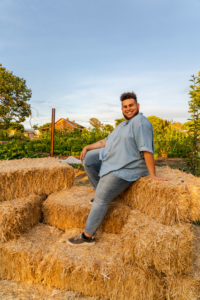 Black, Jewish and Queer. These three identities weave the fabric of who I am, but it took a long time to believe that they could exist together.
Black, Jewish and Queer. These three identities weave the fabric of who I am, but it took a long time to believe that they could exist together.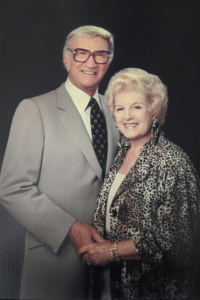 Lee and Toni Leichtag established the Leichtag Foundation in 1991 following the sale of their business. Lee and Toni were lifelong entrepreneurs with a passion for innovation and for supporting talent. They believed that only with big risk comes big reward. Both born to families in poverty, Toni to a single mother, they strongly believed in helping those most in need and most vulnerable in our community. While they supported many causes, their strongest support was for young children and the elderly, two demographics who particularly lack voice in our society.
Lee and Toni Leichtag established the Leichtag Foundation in 1991 following the sale of their business. Lee and Toni were lifelong entrepreneurs with a passion for innovation and for supporting talent. They believed that only with big risk comes big reward. Both born to families in poverty, Toni to a single mother, they strongly believed in helping those most in need and most vulnerable in our community. While they supported many causes, their strongest support was for young children and the elderly, two demographics who particularly lack voice in our society. Lifelong Baltimoreans, Rabbi George and Alison Wielechowski and their sons, 11-year-old Lennon and 9-year-old Gideon, are more than pursuing the good life in Southern California. Having moved to San Diego more than three years ago, they are fulfilling a lifelong dream.
Lifelong Baltimoreans, Rabbi George and Alison Wielechowski and their sons, 11-year-old Lennon and 9-year-old Gideon, are more than pursuing the good life in Southern California. Having moved to San Diego more than three years ago, they are fulfilling a lifelong dream.
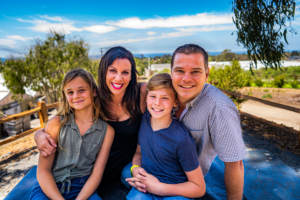
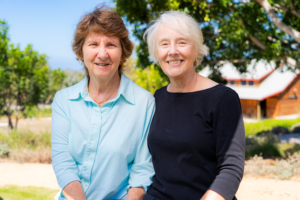

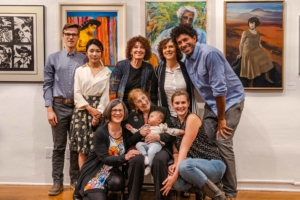
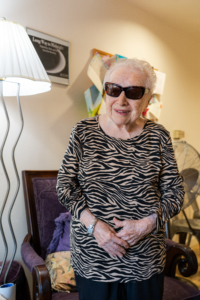
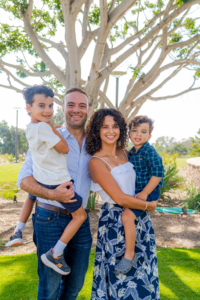
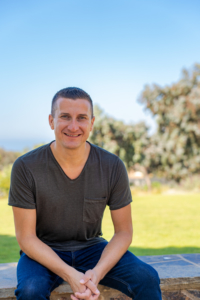 You would think that as the executive director of San Diego LGBT Pride, Fernando Zweifach López Jr., who uses the pronoun they, has done all the coming out they possibly can. A queer, non-binary individual who has worked for many years on civil rights issues, López also speaks openly and often about their father’s family, Mexican-American migrant workers who tilled the fields of rural California.
You would think that as the executive director of San Diego LGBT Pride, Fernando Zweifach López Jr., who uses the pronoun they, has done all the coming out they possibly can. A queer, non-binary individual who has worked for many years on civil rights issues, López also speaks openly and often about their father’s family, Mexican-American migrant workers who tilled the fields of rural California. Stacie and Jeff Cook understand commitment. They live it.
Stacie and Jeff Cook understand commitment. They live it.

Leave a Reply
Want to join the discussion?Feel free to contribute!